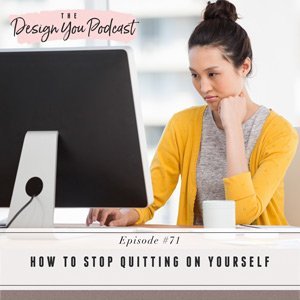
Is there an area of your life that you’ve always told yourself you want to achieve a certain goal in, but have always found yourself unable to follow through? This is true for me and I’m sure this applies to most of you too. I’m highly committed to anything in the realm of my work, but when it comes to my health and wellness, I can’t quite say the same.
This week, I’m shedding some light on why exactly it is we give up on our goals and self-sabotage our own progress when we’re going after something. You’ve got to put the work in to stop quitting on yourself, and I’m outlining the steps for you here today.
The hard truth is that we’re just not willing to do the work that’s required to get to our end goal, but don’t fret. I’m sharing a practice that James Clear talks about in his book to help you reverse engineer the results you want. You can finally have the body, the bank account, or marriage you’ve always dreamt of and I’m definitely seeing huge shifts in my own life by practicing this tool, so I hope you enjoy it.
If you loved this episode or any of my other episodes, I would so appreciate you taking the time to leave me a rating and review on iTunes. It helps me know what you like and want more of, and it helps others know they need to listen to the podcast too!





